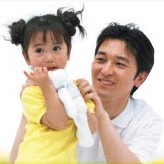-
Advocacy Theme
-
Tags
- Abortion
- Adoption
- Caregiving
- CEDAW
- Disability
- Domestic Violence
- Domestic Workers
- Harassment
- Healthcare
- Housing
- International/Regional Work
- Maintenance
- Media
- Migrant Spouses
- Migrant Workers
- Muslim Law
- National budget
- Parental Leave
- Parenthood
- Polygamy
- Population
- Race and religion
- Sexual Violence
- Sexuality Education
- Single Parents
- Social Support
- Sterilisation
- Women's Charter
“Pro-Family” Policies Need Rethinking (Part 1)
March 27th, 2013 | Children and Young People, Family and Divorce, News, Sexual and Reproductive Health
AWARE Board Member Teo You Yenn discusses why we need bolder moves for a more inclusive society.
 PART 1: SUPPORT FOR SINGLE PARENTS
PART 1: SUPPORT FOR SINGLE PARENTS
It was recently announced that single, unwed parents will now be entitled to the same childcare and infant care leave benefits as their married counterparts. Single fathers will also enjoy paternity leave. This is a step forward – a sign that the state and society are starting to recognise the rights of all parents, regardless of their marital status. But while it is encouraging that the state has lessened the prejudice against single parents and their children, we would like all forms of discrimination to be removed.
Why are steps towards just and progressive policies so modest? Many structural barriers to parenthood unfortunately remain in Singapore. We ask AWARE Board Member and Assistant Professor of Sociology at NTU, Dr Teo You Yenn, why it’s important to make bolder policy moves towards a more equal and inclusive society that is pro-family, rather than pro-a-certain-kind-of-family.
What measures should the government introduce to help single parents and their children?
The measures AWARE recommends do not require special treatment of single parents, but the removal of existing discrimination against divorced, widowed, but especially “never-married” people. To access a variety of public goods – full maternity leave, housing, the Baby Bonus scheme, and parenthood tax benefits – marriage is a precondition. This puts single people, particularly never-married mothers, in difficult positions. These parents and their children are members of our society – it goes against the principles of equality and inclusion to neglect their needs.
In many EU countries, the trend in terms of support for children is to frame support in terms of the rights of children. This makes a lot of sense ethically as well as socially and economically. Ethically, all members of our society, including children, should have access to the same public goods. Why should they have more or less depending on their parents’ practices?
 From an economic point of view, if children are future workers, then we should give them all the same opportunities from which to begin so as to maximize their human potential. From a social point of view, if we are to view children as future citizens who will contribute in a variety of ways to the wellbeing of our society, then ensuring that they have the same levels of support, regardless of their family backgrounds, is not only sensible but crucial to the good of our society.
From an economic point of view, if children are future workers, then we should give them all the same opportunities from which to begin so as to maximize their human potential. From a social point of view, if we are to view children as future citizens who will contribute in a variety of ways to the wellbeing of our society, then ensuring that they have the same levels of support, regardless of their family backgrounds, is not only sensible but crucial to the good of our society.
Do the recent Budget announcements do enough to help single parents? Why or why not?
We welcome the Budget’s commitment to reducing income inequalities and promoting social mobility. We support the attention to increase wages and address the needs of the elderly. However, we would have liked to see more direct attention to caregivers. As it stands, Singaporeans’ access to public goods depends heavily on continuous employment throughout one’s life. This is more difficult for people who have caregiving responsibilities either for the young or elderly members of their families. Most of this care labour is done by women. The single women among this group will have especially heavy burdens since they do not have spousal support to fall back on. Public goods channelled primarily through the CPF results in systematic neglect of caregivers. To do more, the Budget must look beyond employment.
Caregiving work is crucial in all societies. As human beings, we are all dependent on others for care at some point in our lives; without care, we cannot carry out any of the other activities that contribute to society’s wellbeing, including paid employment. Public spending must recognize and support this and not see it as peripheral and secondary to economic activities. And the support we as members of a public provide cannot be limited to narrow groups.
How do you feel about single parents being denied benefits that married parents are entitled to?
Single parents should not be discriminated against. Discrimination is detrimental to building an inclusive society where members of society feel mutual obligations and responsibilities toward each other. Therefore, we should support single mothers not just because we value children, but because we value all members of our society.
 What are the benefits of providing the same social support for single parents?
What are the benefits of providing the same social support for single parents?
The benefits of removing discrimination are numerous: we enable women and men who are single parents to participate as caregivers and /or workers; we ensure that children of single parents do not receive less access to public goods and therefore that there is more equality of opportunity; and we signal and begin to build a society where there is a deep ethos around equality and not differentiation.
Is there a downside to providing the same benefits to single parents?
One common claim to justify discrimination is that removing discrimination will encourage “lifestyle” choices of single parenthood. This is highly implausible. If one stops to think about how much effort, money and personal sacrifice is required for raising a child in contemporary Singapore, we know that raising children as single parents is very difficult. Ours is a situation where married couples with two incomes are limiting their fertility, not one where people will eagerly “choose” to raise children alone.
On You Yenn:
Can you tell our readers more about your role at AWARE? What are your responsibilities?
I have been a member at AWARE since 2003. I became more intensely active in 2010. Currently, I am serving my second two-year term on the Board at AWARE. The Board’s responsibilities are oversight and governance. As a Board, we make decisions about the big-picture goals of AWARE. Many of us are also interested in various specific issues in research and advocacy. Because of my research, I have also been quite involved with various activities to do with what we might broadly call familial issues.
As a Sociologist, do you find it easier to use your knowledge to impact AWARE’s causes?
At AWARE, I feel valued for my expertise as a Sociologist, and there is a nice connection between the more theoretical orientations in my job and the more practical orientations of advocacy work.
Read Part 2 of this interview here.



